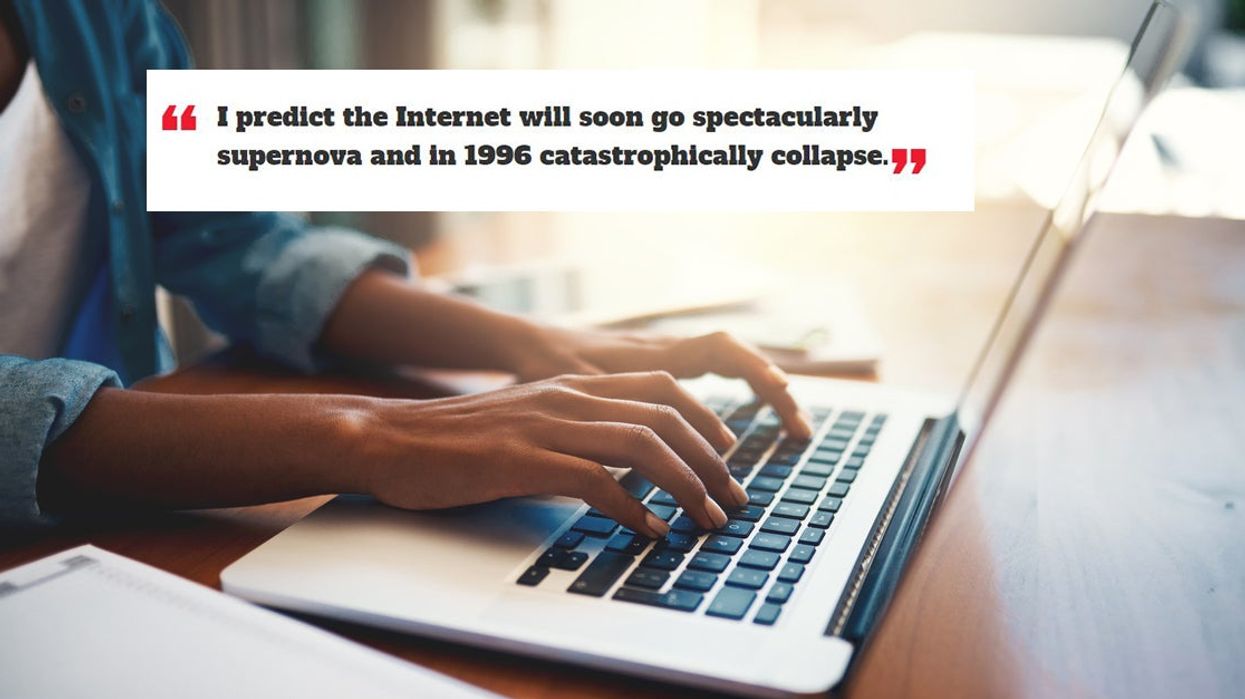Believe it or not, there was once a time when the internet didn't exist, when people have to go outside to enjoy things and (shudder) read books.
Yet today, March 12 2019, marks the 30th birthday of the world wide web and it's safe to say things haven't been the same since that fateful day in 1989.
Although it took a few years to catch on and flourish, the all-encompassing power of the internet is now completely unavoidable and is arguably responsible for a lot of things that people aren't happy with (Trump, Brexit, Momo... etc).
Tim Berners-Lee, the man who invented the web has recently written that he hopes that the internet can be changed for the better in the near future.
Given how much the web has changed in the past 30 years, it would be defeatist and unimaginative to assume that the web as we know it can’t be changed for the better in the next 30.
If we give up on building a better web now, then the web will not have failed us. We will have failed the web.
Whilst we live in a reality where fake news, trolls and bots are very prevalent and very damaging, back in the 90s people had a very real fear of what would transpire if the internet did become an all-consuming and untamable power source.
One of those people was none other than David Bowie, who told the BBC in 1999 that the internet would have both a positive and detrimental effect on music and society.
Another major figure who had concerns about the internet's impact on humanity was Microsoft founder Bill Gates. Writing in 1997 Sharon Reier of the New York Times said:
Even Bill Gates, the founder and chairman of Microsoft Corp. and widely regarded as the crown prince of the World Wide Web, was taken unawares by the Internet's grassroots acceptance
Mr. Gates admitted that he believed the technology for 'killer applications' was inadequate to lure consumers to the Internet.
Before Gates and Bowie, Robert Metcalfe, the inventor of the Ethernet, declared in the December 1995 edition of Infoworld, that the internet would have failed by 1996.
I predict the Internet will soon go spectacularly supernova and in 1996 catastrophically collapse.
Elsewhere, in 1999, Raymond Kurzweil, the Director of Engineering for Google, came up with some pretty vivid ideas on how we would use technology in years to come.
In his book The Age of Spiritual Machines, he believed that we would largely write down text on devices by using some sort of speech recognition software (oh, if it were that easy...).
He added that he believed that phones would be able to translate conversations for us, which isn't entirely inaccurate given the number of translation apps out there but it is still in its primitive stages.
Going back to 1993, the internet expert John Allen told the Canadian broadcaster CBC that he believed that our own moral code and internal rules would stop people from doing horrible things online.
Unfortunately for Allen and the rest of us, this turned out to be fundamentally untrue as you now only need to go on Twitter or Reddit for two minutes before seeing some utterly depressing comments.
With stats now suggesting that the average adult now spends more than half of their day consuming media on the internet, it's safe to say that many of us are hooked.
Therefore, this impacts exactly the way we think, process information and even how we vote, making this 1995 quote from Clifford Stoll, of Newsweek look even more short-sighted.
The truth is no online database will replace your daily newspaper, no CD-ROM can take place of a competent teacher, and no computer network will change the way government works.
Stoll didn't stop there. In the same article, he claimed that 'electronic publishing' wouldn't take off, yet here you are reading an electronically published article, which wouldn't have been possible if other things hadn't been published electronically.
Electronic publishing? Try reading a book on disc. At best, it's an unpleasant chore.
He was also sceptical about online shopping, which is basically how everyone buys stuff now, right?
We’re promised instant catalogue shopping–just point and click for great deals. We’ll order airline tickets over the network, make restaurant reservations and negotiate sales contracts.
Stores will become obsolete. So how come my local mall does more business in an afternoon than the entire Internet handles in a month?
Even if you don't use a computer or laptop every day, a smartphone has proved to be a device that many people just can't do without, you know, for Instagram Stories and all that.
This is what Peter H. Lewis of the New York Times predicted way back in 1992.
Sometime around the middle of this decade - no one is sure exactly when - executives on the go will begin carrying pocket-sized digital communicating devices.
A similar prediction was made by Erik Sandberg-Diment, also in the New York Times, but he was a little less optimistic about the accessibility of technology.
No matter how inexpensive the machines become, I still can't imagine the average user taking one along when fishing.
We'll give the final quote to Mr. Berners-Lee who had some pretty wild ideas about what his daughter's breakfast cereal would be like in the future.
I'm looking forward to the day when my daughter finds a rolled-up 1000-pixel-by-1000-pixel colour screen in her cereal packet, with a magnetic back so it sticks to the fridge.
More: A map of countries with the worst internet access















